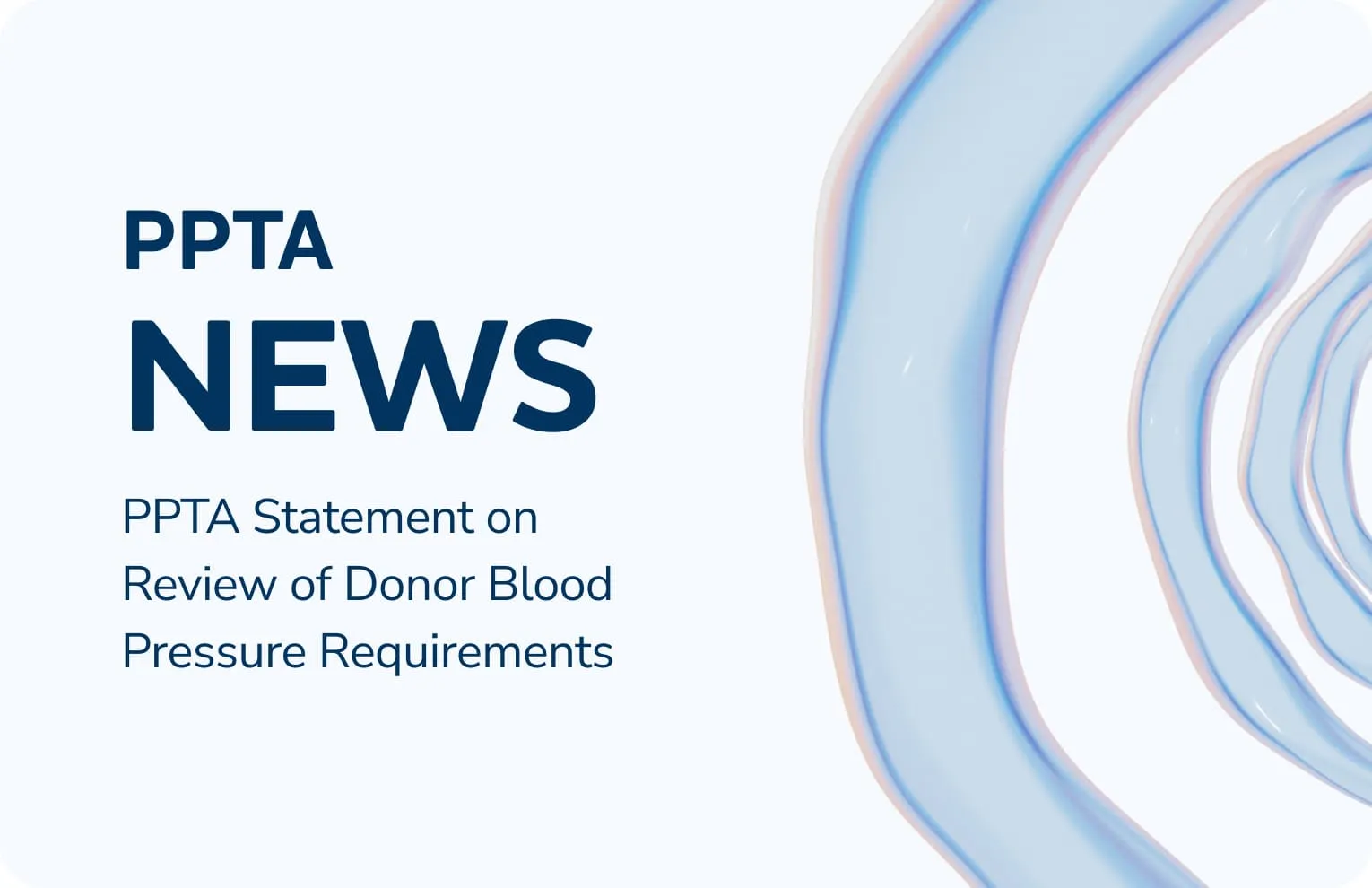4 September 2025
Brussels – The Plasma Protein Therapeutics Association (PPTA) welcomes the recognition of the distinctive characteristics of the diversity of critical medicinal products in the draft report of MEP Tomislav Sokol on the Critical Medicines Act (CMA). The report marks an important step in shaping a framework to strengthen Europe’s competitiveness and resilience in collaboration with all stakeholders, including industry, to secure the supply of critical medicines.
Explicitly recognising the diversity of pharmaceutical supply chains is essential to safeguarding supply security and ensuring continuity of patient access — the ultimate objective of the Act. Plasma-derived medicinal products (PDMPs) are a clear example: their unique starting point is human plasma, voluntarily donated. This finite resource, combined with lengthy, resource-intensive production cycles and highly specialised manufacturing, makes PDMPs fundamentally different from other therapies. A “one-size-fits-all approach” will not work. Tailored policies are needed to ensure patients have reliable access to the medicines their lives depend on.
By embedding supply chain diversity and regulatory coherence, the CMA can enhance Europe’s strategic autonomy, support the sustainability of critical medicines, such as PDMPs, and ultimately reinforce long-term patient access. Alignment with the General Pharmaceutical Legislation and the SoHO Regulation can create a consistent policy environment that supports plasma collection, strengthens PDMP manufacturing in Europe, and secures uninterrupted patient access.
Importantly, the CMA must consider the unique realities of PDMPs, including the limited availability of plasma, extended production timelines, and limited shelf life to truly respond to the steadily growing patient need. PPTA and its members are ready to collaborate with policymakers to ensure the Act delivers on its promise to patients, especially as clinical use grows given increasing diagnoses of plasma deficiencies and new use cases for PDMPs.
“The CMA has the potential to be a milestone for increasing Europe’s health resilience,” said Marilena Vrana, PPTA’s Vice President of Public Affairs and EU Operations. “Recognising the specificities of plasma-derived medicines and ensuring regulatory consistency is essential for long-term supply security and safeguarding patient access. A lot has been done, but we are still looking forward to seeing greater emphasis on the differences in the supply chains across critical medicines in the scope of the Act.”
While Europe hosts 50% of global PDMP manufacturing sites and 40% of the industry’s workforce, it still relies on the United States for nearly 40% of the plasma required to meet European patient need. Strengthening Europe’s resilience requires a framework that reflects these specific realities. As patient groups continue to engage across Member States, the Act must move from being a promising initiative to becoming an instrument that enhances security, availability, and benefits for patients.
PPTA remains committed to working with policymakers and stakeholders to build a reliable, sustainable, and patient-centric framework for PDMPs in Europe.





